Twenty out of Yemen’s 22 governorates have seen a surge in the number of people with acute watery diarrhoea, as more than 63,000 cases have been reported in the country as of 31 May, according to health authorities. Despite the limited testing capacity in the country, more than 2,700 of the tested cases came back positive for cholera.
MSF teams launched a response in eight governorates, providing medical treatment for patients, training for medical and non-medical staff, donations of medical supplies, and carrying out health promotion activities.
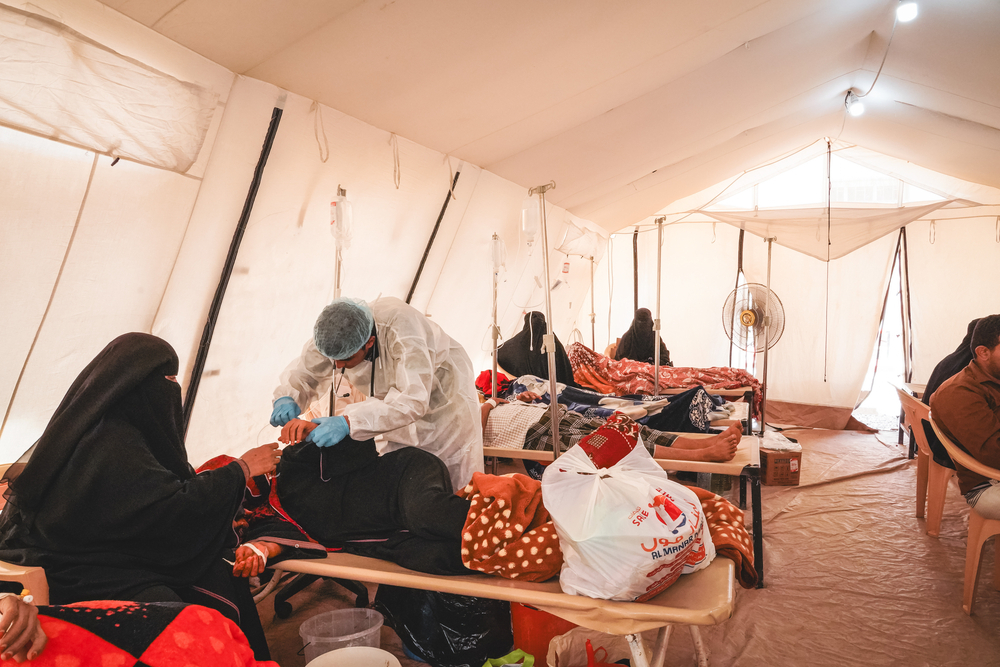
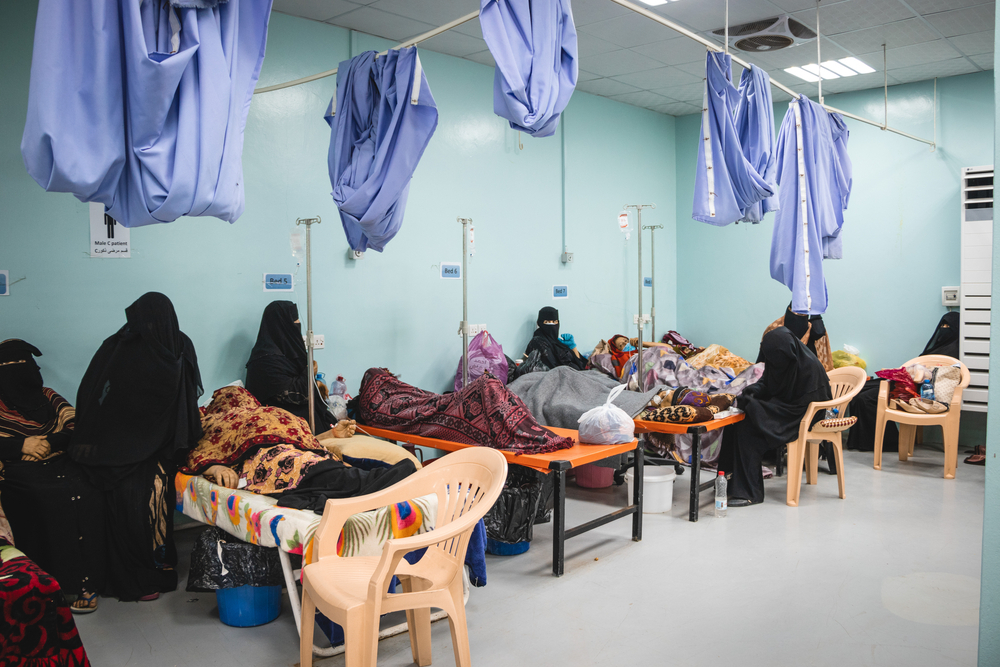
Aseela suffered from vomiting and diarrhoea for four days before her mother Sila was able to make the two-hour journey to bring her to the Médecins Sans Frontières (MSF) mother and child hospital in Taiz Houban, in Taiz governorate, southwestern Yemen, where we run an acute watery diarrhoea treatment centre.
“I had to go into debt to cover the bus transport costs to the hospital,” says Sila. “My husband doesn’t work; we have no source of income. To put food on the table, I go into another village to ask people for flour and rice.”
One and a half year old Amat was falling in and out of consciousness. Her fever wasn’t going down, and she had diarrhoea. Her mother rushed her to a health centre, then another, where she was misdiagnosed and thus given the wrong treatment. When she wasn’t getting better, she was referred to MSF’s treatment centre in Mokha.
Although acute watery diarrhoea has been a recurrent disease in Yemen for years, such a surge in the number of cases poses a risk to the lives of people who already have limited access to healthcare.
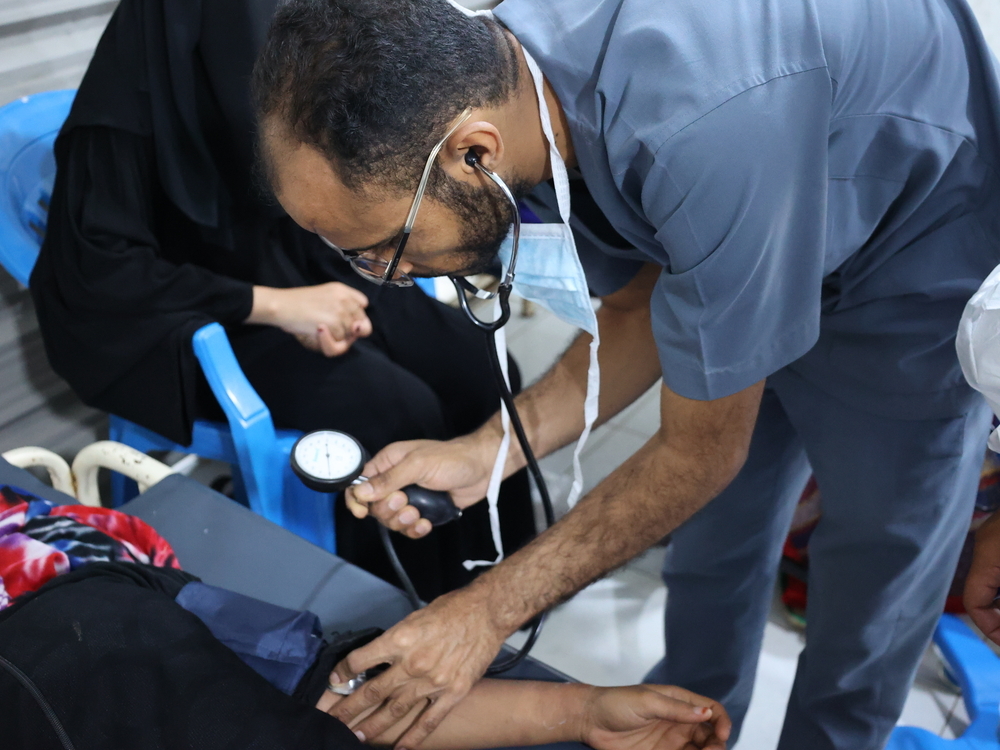
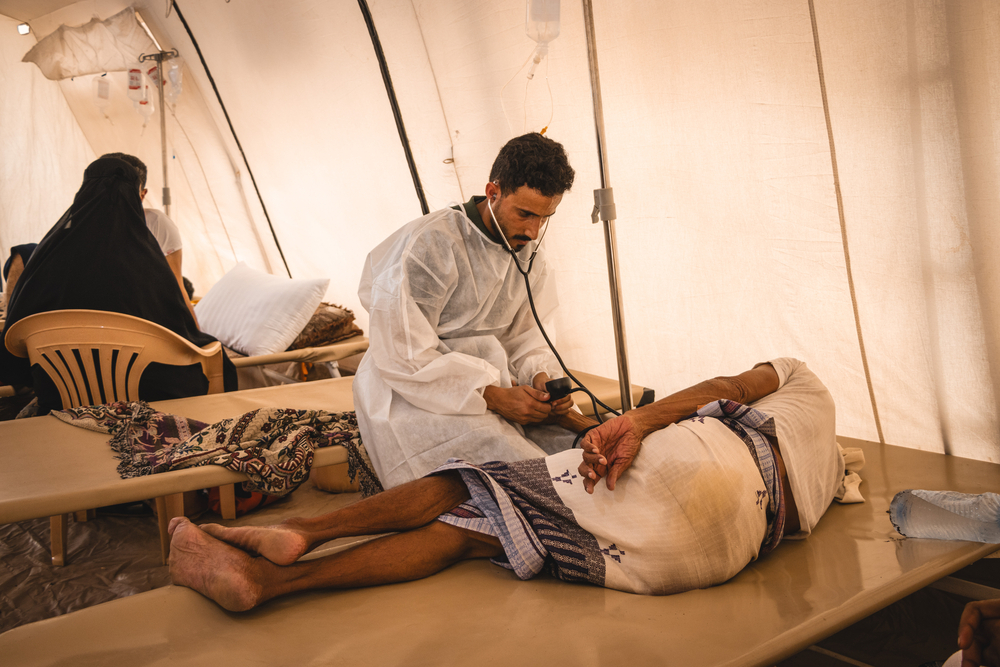
Meanwhile, Osama was suffering from severe dehydration and had to leave his kids at home to seek healthcare. He came over from Taiz governorate to the nearby Ibb governorate, where we run a diarrhoea treatment centre inside the MSF-supported Al-Qaida hospital in Kilo.
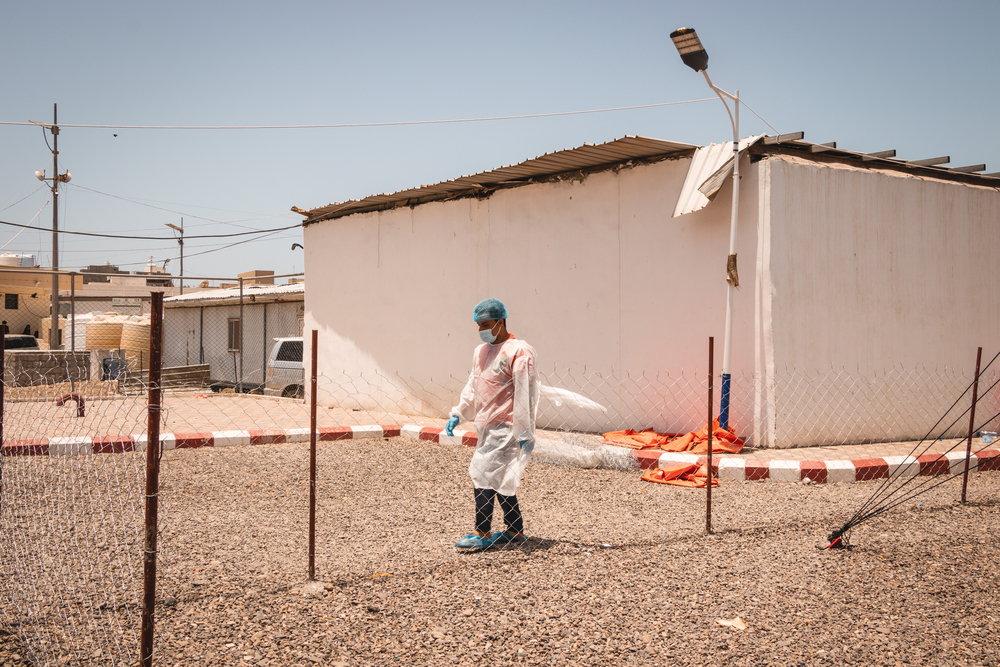
Over at Hajjah governorate, we opened a 60-bed diarrhoea treatment centre in a school five minutes away from the MSF-supported Abs general hospital.
On top of that, the rainy season has started in many areas where we provide support, which will exacerbate the spread of this water-borne disease from contaminated water sources.
Considering the lack of funding allocated for responding to the spread of disease, many international organisations have limited resources to spare, which makes the response inadequate. MSF is one of the few organisations providing treatment to patients with acute watery diarrhoea and cholera – which can kill within hours if left untreated.
In Aden, in collaboration with the health authorities, we run the only cholera treatment centre in the city, equipped with 70 beds, and located inside the MSF-supported Al-Sadaqa hospital. The centre is running at full capacity while the number of patients is steadily increasing.
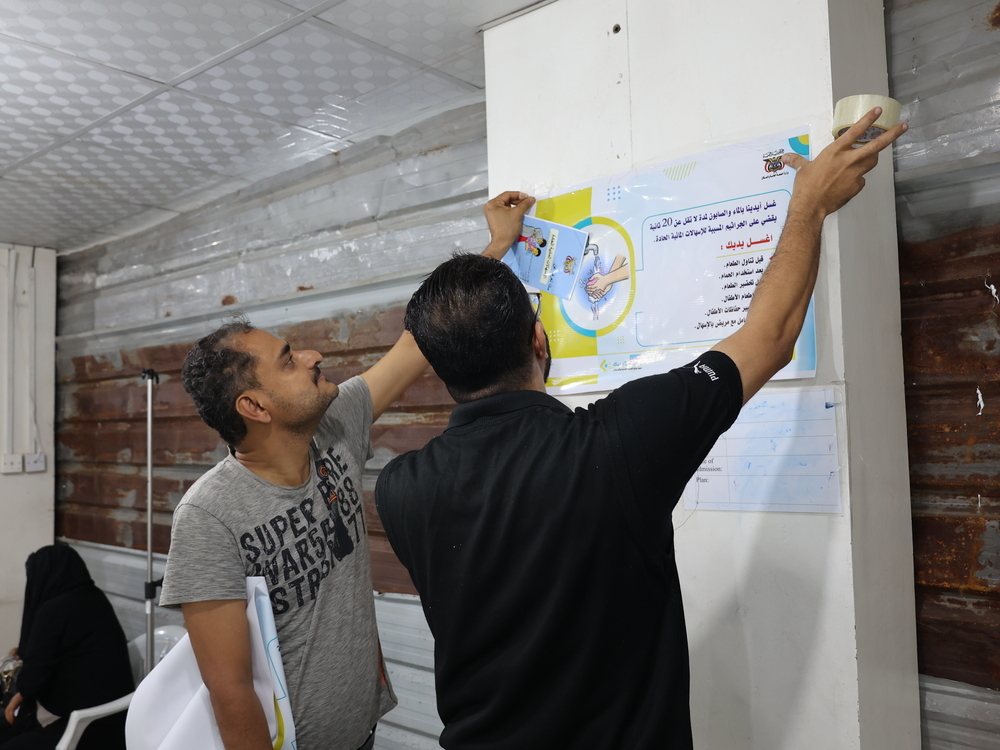
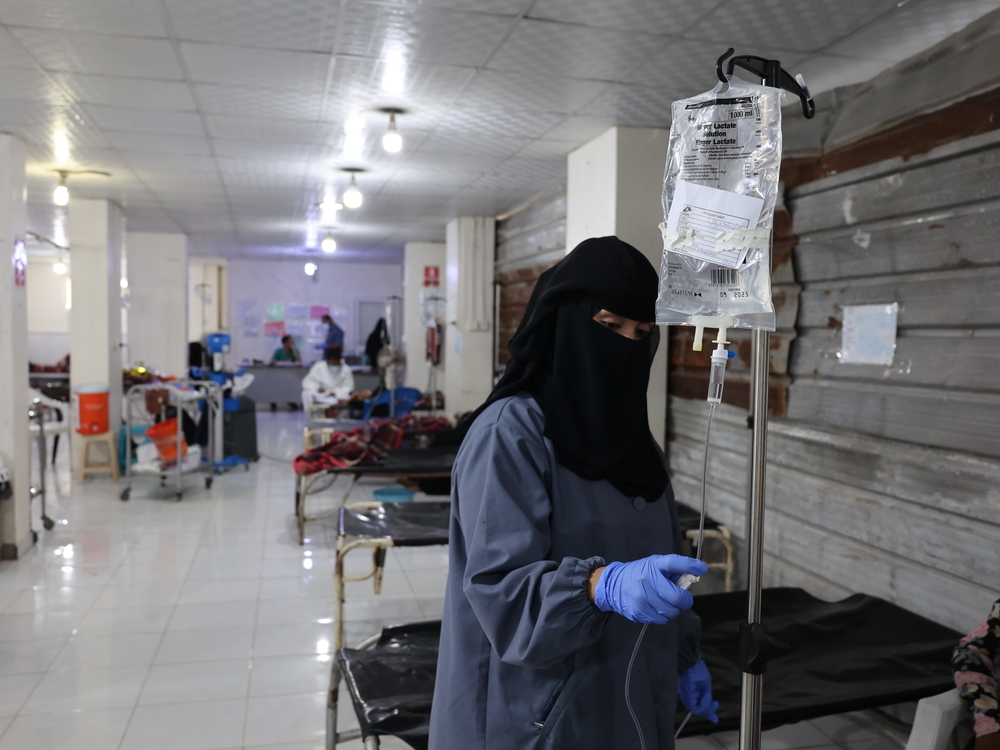
In many areas where we are responding, if the number of patients exceeds our ability to treat them, MSF faces a challenge of finding and training medical, paramedical, and logistical staff to maintain patient treatment activities.
Without wide-scale water and sanitation activities in the most affected governorates, and in the absence of community outreach activities for sensitization on proper hygiene practices and early detection of patients, the surge of acute watery diarrhoea cases is expected to return in waves over the coming months.
Between April and May, MSF treated more than 10,500 patients in different parts of Yemen.












